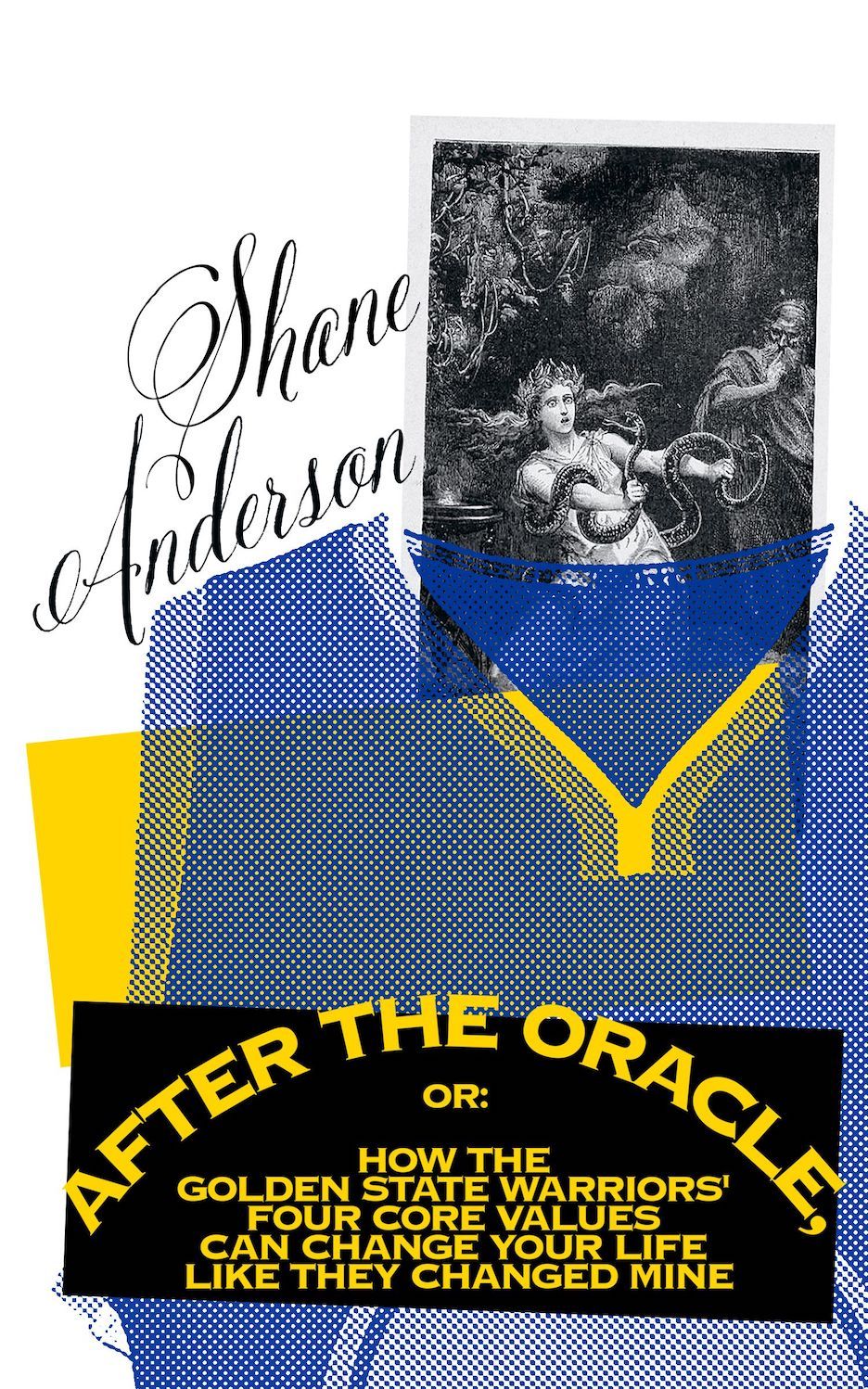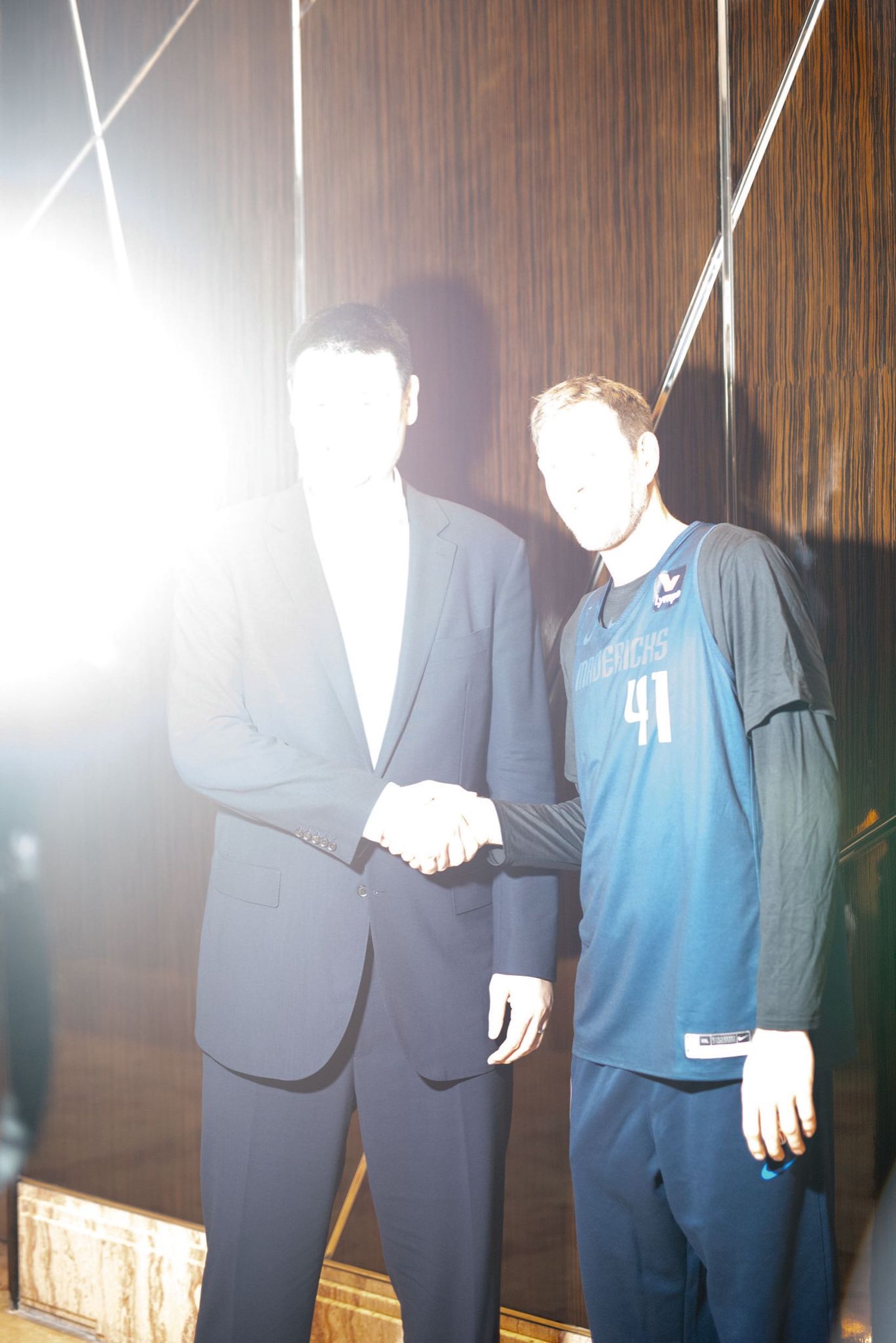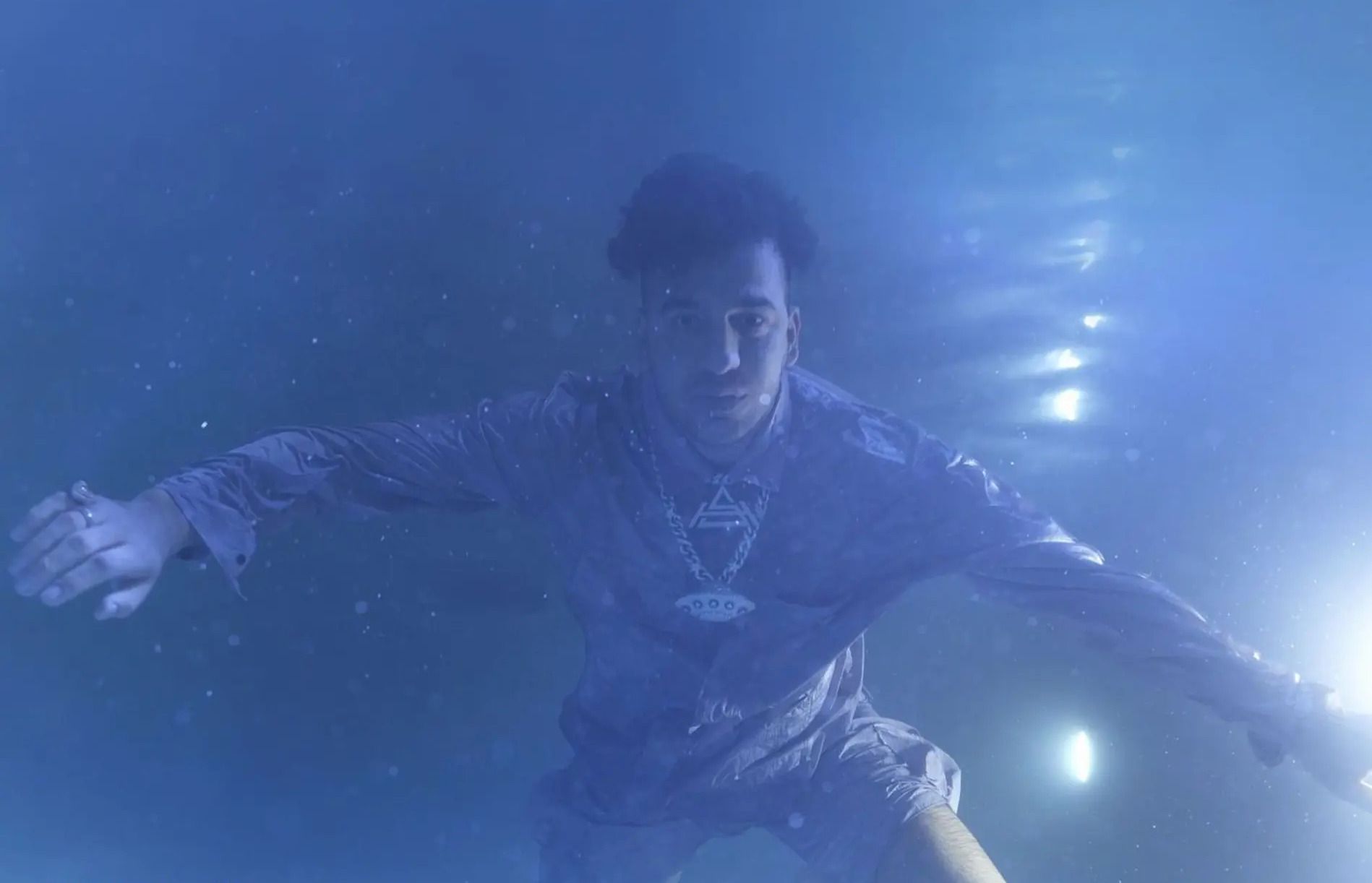After the Oracle
|SHANE ANDERSON
Shane Anderson’s recently released After the Oracle, or: How the Golden State Warriors’ Four Core Values Can Change Your Life Like They Changed Mine is part sports analysis, part confessional memoir, part self-help manual. Based on the 032c managing editor’s experience with healing, crisis, and self-actualization, the new book distills personal memories, basketball history, and a lifetime of Golden State Warriors fandom into a practical guide for enlightened living based on the Northern California team’s four core values: joy, mindfulness, compassion and competition.
The Warriors “had been terrible for my whole childhood,” recalls Anderson, until an ambitious new strategy “miraculously started a dynasty and changed the game of basketball.” Charting the massive shift in NBA fortunes inspired the writer to use the same methods to turn his own life around. After the Oracle is the document of this struggle, and the result of a desire to share its lessons with others. “It’s about what happens after you visit the oracle, then try to put it into practice,” he says, referring at once to the ancient Greek Oracle of Delphi – where the Temple of Apollo is inscribed with the cosmic command to “know thyself” – and to Oracle Arena, named for the American computer technology corporation that sponsored the author’s home team’s stadium.
The excerpt selected here reflects the moment our fellow 032c teammate received the insight that would become the tip-off in a new quarter of Anderson’s life. If you like what you read, a limited number of copies are available from our online store, shipping directly from our Berlin Workshop – where the author will sign and personalize each purchase. Copies are also available from the book’s publisher, Deep Vellum, and from booksellers worldwide.

When I arrived in Bushwick two weeks after my suicide attempt, Sophia and Rachel were relieved to see me. I had stopped answering their emails and they weren’t entirely sure if I was coming. I showered after the long journey and we talked for a while before they had to go to work. They told me to call them if I needed anything or wasn’t feeling well and I said I already felt better; it was good to be away from Berlin.
Alone on their sofa, I picked up the book of poems lying on the coffee table. I flipped to the page that matched my birth year, something I always do, turning a book of poems into a Choose Your Own Adventure novel, a roulette wheel. The poem was titled “The Convalescent,” an unappealing idea. I skipped ahead a hundred pages. I then read the following poem:
“Archaic Torso of Apollo”
We never knew his head and all the light
that ripened in his fabled eyes. But
his torso still burns like a streetlight dimmed
in which his gaze, lit long ago,
holds fast and shines. Otherwise the surge
of the breast could not blind you, nor a smile
run through the slight twist of the loins
toward that center where procreation flared.
Otherwise this stone would stand cut off
and cold under the shoulder’s transparent drop
and not glisten like a wild beast’s fur;
and not break forth from all its contours
like a star: for there is no place
that does not see you. You must change your life.
I put down the copy of Rainer Maria Rilke’s New Poems. I was terrified. I read the poem again and the last line felt like an indictment. Rilke was right. I must change my life—but how? Without guidelines, these oracular words were fireworks that burst and no more. I looked for further assistance on the next page, in the next poem, but it didn’t offer any suggestion. Instead, it depicted the huntress Artemis storming off in anger. I read the poem about Apollo again and realized I was Apollo’s torso, headless and exposed. Then I read the poem about Artemis once more. Unsure what it meant, I ate one of the bagels I had bought on my way from the subway and took a nap.
For the next two weeks in New York, I walked around Manhattan trying to memorize “Archaic Torso of Apollo” in German. I hoped that the secret of how I could change my life would be released if I could speak the words perfectly from memory. Day after day, I failed on the seventh or ninth line, then took the train back to Brooklyn in the evenings where I met friends and friends of friends, poets all of them.
One night, I was supposed to meet Rachel for drinks in Williamsburg after she went to a reading. On my way out of the station, I walked by a sports bar and saw that the Warriors were playing the Denver Nuggets. I could tell by the lettering in the bottom right corner that it was the NBA playoffs. I was shocked. It seemed impossible that the Warriors were in the playoffs again—we were terrible. Weren’t we? I entered the bar and texted Rachel to come.
To my great satisfaction, the bar was streaming the first game of the 2013 playoffs from the Warriors’ feed on NBA League Pass, and I heard the familiar voices of the Warriors’ announcers, Bob Fitzgerald and Jim Barnett. I smiled. Like in all those years I had watched the Warriors’ broadcasts, I heard Barnett analyze the gameplay in his overly excited grandpa sort of way and the familiarity made me feel like a boy again. I could see all those years in front of the television and all the players I had loved in Oracle Arena: Chris Webber, Chris Mullin, Tim Hardaway, Mitch Richmond, Šarūnas Marčiulionis, Baron Davis, Latrell Sprewell. As I drifted into these warmer climes of my memory, my previous devotion to basketball appeared like an oasis.
Standing at the bar, I remembered the first time I went to Oracle, which was then called the Oakland–Alameda County Coliseum Arena. I remembered that my dad and I had seats in the nosebleeds and that I was very excited to be ditching school for basketball. I remembered being so enthralled and beside myself that I drooled on the t-shirt that my dad had bought me before the game, featuring cartoon caricatures of the team, and so there was a big pool of red slobber on Chris Mullin’s head. I hadn’t been paying enough attention while eating Hot Tamales and staring at the jumbotron. I remembered crying and my dad consoling me with the words, “Come on, this is awesome.” The stadium was so loud and ebullient and it lifted my mood. And Oracle Arena would stay that way in all the years the Warriors were terrible. I also remembered that when we drove back home the next day, I picked up my ball and went onto our driveway that still had small piles of snow on it. There, I practiced Tim Hardaway’s crossover, which I couldn’t get quite right. I only went inside the house for dinner, my hands thoroughly frozen. It didn’t matter.
As a child, basketball had meant the world to me. It provided a way to survive the daily domestic calamities, the occasional violence at home, and the boredom of the public school system. I would spend every afternoon after school in the fall and spring and all day during the summer shooting hoops on the rim above our garage door. With the length of happy days, I devised complicated games for myself, practiced the signature moves of star players, and invited neighborhood friends over to play on the driveway where I had home court advantage. I knew every crack in the asphalt, the gaps that approximated the three-point and free throw lines as well as where the ball would bounce out of alignment from the Ponderosa pine tree’s carnage, the roots upheaving and destroying my kingdom. Such disastrous conditions were not irksome, just a given. Out on my court on Warr Road in South Lake Tahoe, California, nothing else mattered. I felt like a king.
Watching the Warriors lose to the Nuggets in the bar in Williamsburg, I remembered that basketball had been almost alchemical when I was younger: it could change the color of the day, it could turn anger, fear, and boredom into—what was it exactly? Something better, something golden. I paused and remembered Rilke’s final line. Then ordered another round for Rachel and me to say goodbye.
“I must change my life—but how? Without guidelines, these oracular words were fireworks that burst and no more.”
The next day, I flew back to the place I still call home and, like a true prodigal son, I threw myself into becoming reacquainted with my familiar territory. I stayed up all night in Berlin illegally streaming the first round of the playoffs, read about what I had missed in the three years where I didn’t watch basketball. The Warriors had finally fired Don Nelson after that game against the Portland Trail Blazers and now everything was changing. They were becoming an actually decent team under Mark Jackson, perhaps even better than that. Feeling inspired, I decided to disobey my doctor, the man who had performed the surgery on my back. On my final obligatory checkup in June 2005, he had insisted that I could never play contact sports again: it was too risky and might damage his work, which he had admired as he ran his fingers up my naked spine like a sculptor. I had listened to him in all those years after, when I could no longer bend over to tie my shoes—the metal rods and the fused vertebrae made me unbendable. But back in Berlin and excited for the first time in years, I bought a ball and shot a lot of bricks for a couple of days, with the belief that basketball might change something, my love might bring me out of my misery. One evening, I dared to take part in a pickup game at Hasenheide park. In that first game, I made a backdoor cut and went up for an easy layup. I played alright for the rest of the game and was surprised to be invited to come play the next evening. I felt like a boy again.
But once I was alone again in my apartment, I felt like a mere manchild. I had left New York with that Rilke line buzzing in my head and the idea that perhaps basketball might be the key to a life without anxiety, without loneliness, as it had solved so many problems before. I hoped that basketball would help me to start living with a sense of purpose. Love is known to be all powerful. It is said to destroy all boundaries. But it was unable to get through the corset. I was still a mess whenever I was alone with myself.
I thought about letting it go. It was just a poem. A very good poem, yes, but definitely not a spell or a citation or an invoice— though it tormented me like all three of them combined.
You must change your life.
How? I wasn’t about to turn to some stupid self-help manual. What I did instead was throw myself into basketball, which turned out to be a way to avoid myself. I spent countless days looking up statistics or watching old clips, seeing everything I had missed. I invested even more time in the Warriors, whose story was more promising. They were on an upward trajectory ever since the game I had watched against the Trail Blazers and things looked like they were going to get even better. We had the best backcourt in NBA history, Steph Curry and Klay Thompson were…
There was that nagging voice again.
You must change your life.
But what about –
You must change your life.
You must change your life.
You must change your life!
Basketball was just a distraction.
Until it wasn’t.
Toward the start of the 2015–16 season, I was scanning Reddit’s r/warriors feed on my phone. There was a lot of buzz around the team since the new head coach, Steve Kerr, led the Warriors to our first championship in 40 years. Every sandwich, interaction, and opinion was recorded and distorted into something about greatness. The first article linked in the r/warriors feed was no different. It was from yesterday, November 27, 2015, and it made the obligatory passing mention about the Warriors winning the 2015 NBA championship and then detailed a pep talk Kerr gave to the team before the seventeenth game of the season.
At the time, Kerr was actually away from the daily life of the Warriors as he was nursing his back after a botched surgery, but the article suggested Kerr was something like the holy spirit guiding the Warriors to victory. He did this by establishing the team’s four core values of joy, mindfulness, compassion, and competition, which would not only help them to be better players on the court but to also be better people off it.
It was like lightning.
My jaw dropped and I wanted to guffaw but then I had a flash of bounce passes. Of slapping hands after a good play and how people played together. The rude bruisers who inflict violence in pickup games like their lives depended on winning. The flashy movers who want to look nice above everything else. The me-first ball hogs in parks and gyms who always wonder why no one wanted to play with them. There are loud talkers in pickup games who call foul when no foul has been committed and quiet warriors who let their work speak for them. There are people who never want to get in the way and those who only came out to get some exercise and have a little fun. There are also the overambitious who try to do everything alone.
What turned some of the most famous relentless lone gunners into great basketball players was that they learned to trust their teammates. While continuing to deliver excellence, players like Michael Jordan and Kobe Bryant learned to relinquish absolute control and their trust turned them into champions. But then how did this change take place? I remembered that both Jordan and Bryant only started winning once they were coached by Phil Jackson, basketball’s “Zen Master”—who had also been Steve Kerr’s coach!
It was getting dramatic.
Was I getting this right?
Was Kerr suggesting turning his four core values into a life practice?
And: if you can change your habits on the court, can you shift that wisdom off it?
Suddenly I had the light inside and everything was visible.
I would change my life.
By living according to the Warriors four core values: joy, mindfulness, compassion, and competition.

Credits
- Text: SHANE ANDERSON


